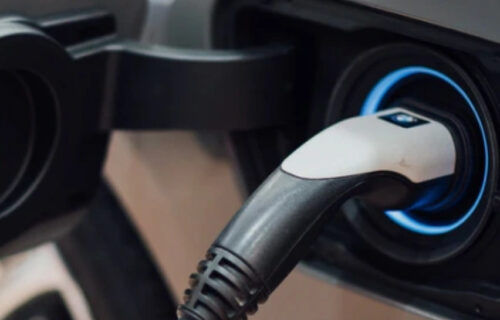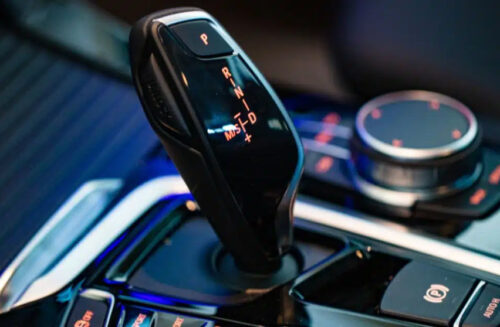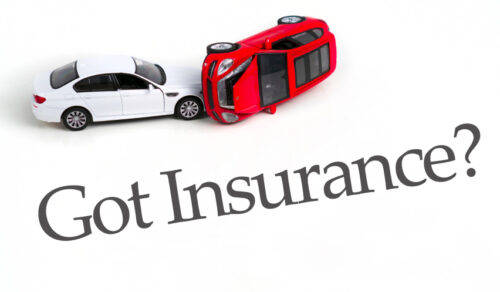5 scary things owners can find in their car
Not ghosts, but things that can make a car lover’s heart drop

In the spirit of the season, car nuts and driving enthusiasts are likely to roll out stories of encounters while driving or on road trips. Some of the aforementioned range from just creepy but mundane to the unexplainable and possibly paranormal.
KEY TAKEAWAYS
What can cause car paint to fade?
Some major causes of car paint fading include environmental factors such as sunlight exposure.What can cause engine oil leaks?
A compromised head gasket, a loose drain plug, overfilling of oil, a damaged oil pan, and many other factors can cause engine oil leaks.Terrifying still to the devoted car owner, however, are the myriad signs that there is something very wrong with one’s vehicle. A lot of scary things can be found in one’s beloved car, but here are five that we think are just downright scary.
Check engine light
A glowing check engine light symbol on one’s dashboard might be one of the scariest things a car owner can find in their ride.
What’s so terrifying about it is that one will never know what is causing it. It can be a sign of something as simple as low fluid (likely engine oil), a faulty spark plug, a malfunctioning mass airflow sensor, or even something as silly as a loose gas filler cap.
On the other end of the spectrum, a check engine pilot light on the dash could also indicate internal engine damage. The aforementioned, of course, is uncommon, but any repair job involving cracked pistons, cylinder wall scoring, or piston ring failure will necessitate extensive (and expensive) fixes.
So, what should a car owner do when he or she spots a glowing check engine light symbol? Well, one could ignore it or even block it out with a well-placed piece of electrical tape, but that will only result in more heartache and headaches in the end.
The right thing to do is to have the vehicle checked immediately.
Red-hot temp guage
Spotting a high (and hot) temperature gauge on a car’s dashboard is stressful, and if one sees the gauge rise while driving on the highway or in the middle of a busy in-city road, it can be stomach-dropping as well.
 Photo from Cesar Guiderone Miguel
Photo from Cesar Guiderone MiguelWhy is a rising or high car temperature gauge scary? Well, it is a tell-tale sign that something has gone awry in the vehicle’s cooling system. Obviously, a powertrain system that’s unable to cool itself is no good. Too much heat can potentially cause permanent damage to engine internals, gaskets, hoses, and seals, after all.
So, what should one do if the car temperature guage rises? For starters, one should immediately pull over to a stop at a safe location, even before smoke rises up from the car’s bonnet. Let the car cool, and then check for coolant levels. Also, check if the radiator cap is screwed on properly or not.
Do take note not to open or unscrew the car’s radiator cap if the engine bay is still hot. The hot coolant is extremely dangerous, and the pressure build-up (due to high temperatures) may cause it to spew out of the radiator.
 Photo from Cesar Guiderone Miguel
Photo from Cesar Guiderone MiguelThe least problematic causes of overheating could be a bad thermostat, a fault belt, a leaky or loose hose, or a failing water pump. On the flip side, the worst causes of a car’s overheating issues could stem from a cracked cylinder head or a leaky radiator.
Rust
More often than not, modern brand-new cars have some form of rust protection. Older cars with thinning paints, however, may be more susceptible to the dreaded rust. Sure, rust on cars is more common in other countries where they salt the roads to stave off frost, but the local driving setting still has environmental factors that can cause corrosion.
So, for guys working hard to restore a classic jalopy back to its former glory, finding rust on their vehicle’s structural, weight-bearing components can be a nightmare. Depending on how bad it is, rust can render a car unsafe.
When it comes to dealing with rust, prevention is always better than a cure. For starters, folks who are looking to restore an old vehicle should thoroughly inspect its under chassis to avoid this problem in the first place. If a rusted spot is isolated, and if the corrosion is limited to the surface, it can be dealt with by stripping the said part’s paint, sanding the affected spot, and then repainting.
Fading car paint
Another common problem that will scare most car owners is seeing the once vibrant paint on their cars turn dull.
Causes for fading car paint in the Philippines are usually environmental stressors like sun exposure. In other cases, the car is just too old.
To prevent paint fade, experts say a regular wash and wax is a must. It also helps to keep the car under a covered garage.
Leaky bits
Finding puddles under one’s parked car can be scary for a car lover. Sure, it could just be water from rain or condensation from the vehicle’s onboard air-conditioning system, but if it isn’t water, you and your wallet might have a huge problem.
The most common car leaks are from the engine’s oil pan, a coolant leak, a transmission fluid leak, a power-steering leak, or a brake fluid leak.
 Photo from Cesar Guiderone Miguel
Photo from Cesar Guiderone MiguelSure, one can simply top-up on these fluids and go on your merry way, but it could be a sign of an underlying issue a car owner should definitely fix as soon as possible.
Engine oil leaks, for obvious reasons, will eventually starve your car’s powertrain of much-needed lubrication - a recipe for internal damage. Losing brake oil is the scariest, though. If it is a particularly bad and abrupt leak, one can lose stopping power, and it will eventually lead to accidents.
Final thoughts
All in all, seeing the above-mentioned in one’s car can be a scary experience, especially for newbie car owners. The said issues, however, can be preventable with proper maintenance or via regular vehicle checks.
Also read:
6 safety features that help drivers become more independent
Here are some of the common ADAS features found in PH-spec cars
Sell your car at the best price
 Verified and genuine buyers
Verified and genuine buyers
PIMS 2024
Trending & Fresh Updates
- Latest
- Popular
You might also be interested in
- News
- Featured Stories
Featured Cars
- Latest
- Upcoming
- Popular
Latest Car Videos on Zigwheels

Car Articles From Carmudi
- journal
- advice
- financing
- insurance












































































